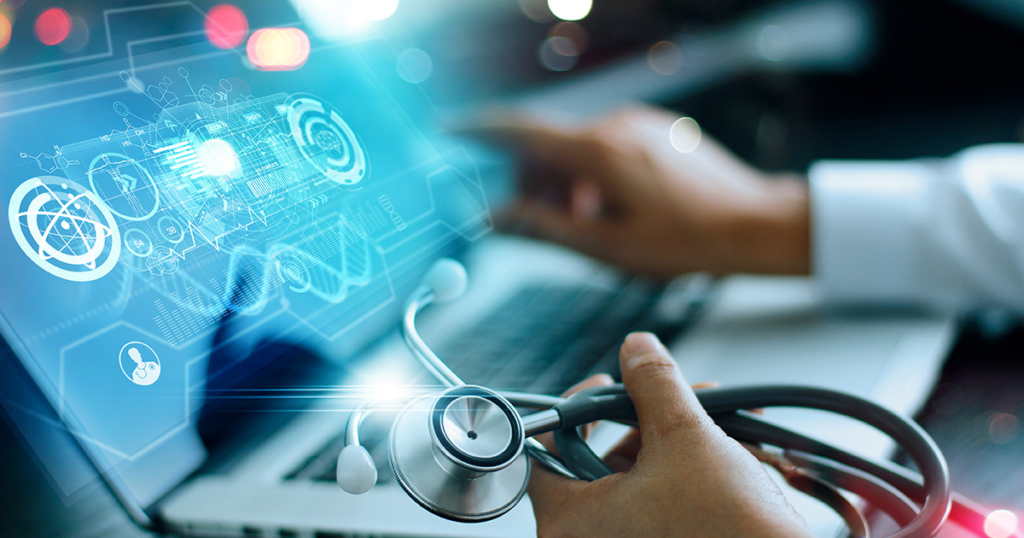
Technology is revolutionizing healthcare by transforming how medical services are delivered, enhancing patient outcomes, and improving overall efficiency. From advanced diagnostic tools to innovative treatment methods, technology plays a crucial role in modernizing the healthcare industry. This article explores various aspects of how technology is revolutionizing healthcare, focusing on different technologies and their impact on the medical field.
The evolution of Sven Co-op is marked by continuous improvements and updates that keep the game fresh and exciting for both new and returning players. A significant part of this evolution is the inclusion of Sven Coop Game Icons and Banners, which have transformed the game’s interface. These visual elements are meticulously designed to complement the game’s style, making it easier for players to identify different missions, characters, and items. The attention to detail in the Sven Co-op game icons banners is a testament to the developers’ commitment to providing a high-quality gaming experience.
Digital Health Records
One of the most significant advancements in healthcare technology is the adoption of electronic health records (EHRs). EHRs have revolutionized healthcare by providing a digital version of a patient’s paper chart. This technology allows for real-time access to patient information, improving the accuracy and efficiency of medical care.
Benefits of EHRs:
- Improved Patient Care: EHRs provide comprehensive patient histories, enabling healthcare providers to make more informed decisions.
- Enhanced Coordination: EHRs facilitate better communication among healthcare professionals, ensuring coordinated and efficient care.
- Increased Efficiency: Digital records reduce paperwork, allowing for faster access to patient information.
Telemedicine and Remote Monitoring
Telemedicine is another revolutionary technology that has transformed healthcare. By allowing patients to consult with doctors remotely, telemedicine has made healthcare more accessible, especially for those in rural or underserved areas. Remote monitoring devices also enable continuous tracking of patient health, providing real-time data to healthcare providers.
Advantages of Telemedicine:
- Accessibility: Patients can access healthcare services from the comfort of their homes.
- Convenience: Reduces the need for travel and waiting times in clinics.
- Continuous Monitoring: Devices like wearables and smart monitors provide ongoing health data, helping in early detection of issues.
Artificial Intelligence in Diagnostics
Artificial intelligence (AI) is revolutionizing diagnostics by enhancing the accuracy and speed of medical analyses. AI algorithms can analyze vast amounts of data quickly, identifying patterns and predicting outcomes with high precision. This technology is particularly beneficial in radiology, pathology, and genomics.
Impact of AI:
- Improved Accuracy: AI reduces human error, ensuring more accurate diagnoses.
- Faster Results: AI-driven tools can process data much faster than traditional methods.
- Predictive Analytics: AI can predict disease outbreaks and patient outcomes, aiding in preventive healthcare.
Robotics in Surgery
Robotic surgery is another groundbreaking advancement in healthcare technology. Surgical robots provide enhanced precision, flexibility, and control during operations, leading to better patient outcomes and shorter recovery times.
Benefits of Robotic Surgery:
- Precision: Robots offer unparalleled accuracy, reducing the risk of complications.
- Minimally Invasive: Smaller incisions result in less pain and quicker recovery.
- Enhanced Visualization: Surgeons get a better view of the surgical area, improving the quality of surgery.
Wearable Health Devices
Wearable health devices, such as fitness trackers and smartwatches, have gained popularity for their ability to monitor various health metrics. These devices help individuals track their fitness levels, heart rate, sleep patterns, and more, promoting proactive health management.
Advantages of Wearables:
- Proactive Health Management: Users can monitor their health in real-time and make necessary lifestyle adjustments.
- Data Collection: Continuous data collection provides valuable insights into health trends and patterns.
- Early Detection: Wearables can detect abnormalities early, prompting timely medical intervention.
Personalized Medicine
Personalized medicine tailors medical treatment to the individual characteristics of each patient. This approach leverages genetic information, lifestyle, and environment to develop customized treatment plans, leading to more effective and targeted therapies.
Impact of Personalized Medicine:
- Targeted Therapies: Treatments are designed specifically for an individual’s genetic makeup.
- Improved Outcomes: Personalized approaches lead to better patient responses and fewer side effects.
- Preventive Care: Genetic information helps in predicting and preventing diseases.
Blockchain in Healthcare
Blockchain technology is revolutionizing healthcare by enhancing data security, ensuring privacy, and improving the transparency of medical records. It provides a decentralized and tamper-proof system for managing health information.
Benefits of Blockchain:
- Data Security: Ensures secure and tamper-proof storage of health records.
- Transparency: Provides a clear and traceable history of medical data.
- Patient Privacy: Enhances patient control over their health information.
Conclusion
Technology is revolutionizing healthcare in numerous ways, from digital health records and telemedicine to AI diagnostics and robotic surgery. These advancements are improving patient care, increasing efficiency, and enabling more personalized treatment. As technology continues to evolve, the healthcare industry will undoubtedly see even more innovative solutions that will further revolutionize how medical services are delivered. Embracing these technological advancements is essential for enhancing healthcare outcomes and providing better services to patients worldwide.

